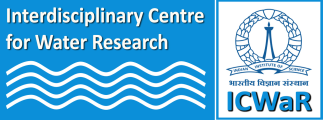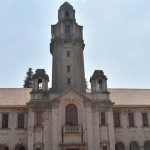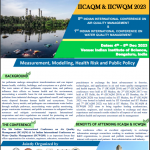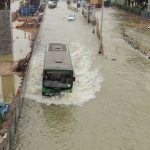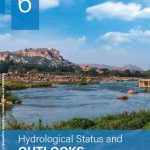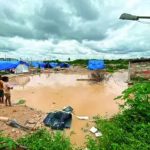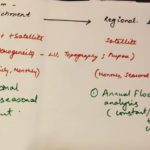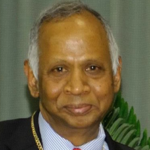Assessing the feasibility of climate change adaptation options in the water sector: Examples from rural and urban landscapes
Name of the Speaker: Dr. Chandni Singh
Title of the Seminar: Assessing the feasibility of climate change adaptation options in the water sector: Examples from rural and urban landscapes
Date and Time: 21 Sept 2021 (Tuesday), 4:00pm
Online Platform: MS Teams [link to the video of the seminar]
About the Speaker: Dr Chandni Singh is a Senior Researcher and faculty member at the Indian Institute for Human Settlements (IIHS), Bangalore. Her research examines the drivers of differential vulnerability to climate change and hazards; linkages between climate change adaptation, livelihoods, and development; how and why people adapt (or choose not to); and the outcomes of these decisions on wellbeing and aspirations. She currently co-leads projects on urban sustainability and green infrastructure (https://upagri.net/), long-term disaster recovery (https://recoverywithdignity.iihs.co.in/), and climate-resilient development. In the past, she has worked in international and national organisations on community-based watershed management, wetland restoration, livelihoods strengthening. She is a Lead Author on the IPCC Assessment Report 6 Working Group II (Impacts, Vulnerability, and Adaptation); Contributing Author on the IPCC’s Special Report on 1.5 C; and Lead Author on the Third Assessment Report on Climate Change and Cities (ARC3.3). She serves on the Editorial Boards of Regional Environmental Change, Climate and Development, Progress in Development Studies, and Urbanisation. Chandni holds a PhD in Rural Livelihoods from the University of Reading, UK and an MSc in Environmental Science from TERI University, New Delhi.
Abstract: Water availability mediates rural and urban development through its impacts on a range of sectors such as agriculture and industry. Climate change and associated risks attenuate this water availability. Given this, various adaptation options have been implemented in the water sector. These are interventions targeting demand management or supply augmentation; focussing on improving water use efficiency etc. However, which adaptation options are feasible in particular contexts and how should one prioritise interventions? To answer this question (and inform adaptation prioritisation), it is critical to assess the various adaptation options in the water sector and synthesise lessons on which options are feasible and under what conditions. This talk will outline how the multidimensional feasibility of adaptation options in the water sector can be assessed. It will then showcase how adaptation feasibility is regionally differentiated, two case studies are discussed: flood management in cities; and community-based watershed management in rural areas. The approach also links climate adaptation aims with other concurrent issues facing water managers – that of synergies and trade-offs with climate mitigation and sustainable development. Water has been called the “middle child of global climate policy” (https://www.nature.com/articles/s41558-021-01154-y), this talk will outline one way to think of addressing this and highlight how the water sector already has a suite of adaptation choices to draw on.
Dr Amir Bazaz, Senior Lead (Practice) at IIHS will join as a discussant
Date/Time
Date(s) - 21/09/2021
4:00 pm
